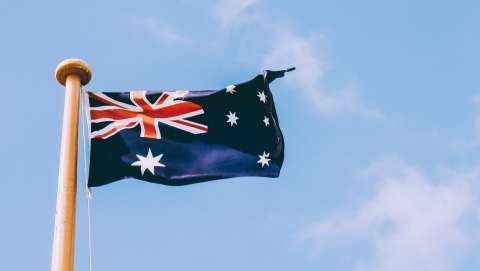Analysis of the literature revealed authors from countries with large coral reef systems, such as The Maldives, Papua New Guinea and Indonesia, are underrepresented.
Coral reefs support approximately 25 per cent of marine species, and are essential to coastal economies, such as the fishing and tourism industries, to name a few. But coral reefs worldwide are at risk due to climate change and are on the brink of collapse.
The global decline of coral reefs has encouraged extensive research. Now, scientists from UNSW Sydney have assessed the current landscape of coral health research to reveal biases in the field.
The team discovered that most papers on coral reef research are published from within the US and Australia, while researchers from countries with large coral reefs, such as The Maldives and Papua New Guinea, are underrepresented. As these reefs are also on the brink of collapse, the UNSW research team emphasises the importance of local experts to be included.
They also identified key topic areas that are underrepresented within the existing literature, including coral bioerosion and the microbiome, both of which are important to paint a more complete picture of the state of our reefs.
The team hope the findings published today in the Journal of Ecological Solutions and Evidence will help inform marine ecologists on the understudied areas of coral research, increase funding in underrepresented countries and raise public trust in science.
“The idea behind this research was to take stock of what information we have, like a bird’s eye view of the research,” says Samantha Burke, a PhD candidate and lead author on the study from the UNSW School of Biological, Earth & Environmental Sciences (BEES).
“We wanted to provide clear data on the topic areas that we’ve looked at, as well as the areas that require further research, and also to provide some ideas and evidence-backed directions for where we can improve coral health research as a whole.”
Taking a holistic view of the research
For the study, the team synthesised 335 literature papers on coral health and documented a number of key characteristics, such as details of the authors – including affiliated country – the key themes explored in the papers, the methods used in each publication and the research integrity of the study. They also used systematic maps to report the state of knowledge within the field, identifying research gaps, most studied themes, and timelines of when topics gained popularity.
“By weaving together these different techniques, we can get a more holistic view of what’s missing, and perhaps some explanations as to why there are certain biases within the field,” says Ms Burke.
The final part of the methodology is a critical appraisal using a set of predetermined criteria for transparency and rigour within research. For example, whether these studies openly share the data and type of analysis they used.
“I think it’s important for people to be held accountable,” says Ms Burke. “We want to push this research area into a better place, not just within the field itself, but also in terms of public trust in science as a whole.”
Highlighting biases in the field
Key study topics identified were climate change and coral resilience, at 50 per cent and 42 per cent, respectively. Bioerosion of corals – the removal of coral material by other living reef organisms – was the least studied.







